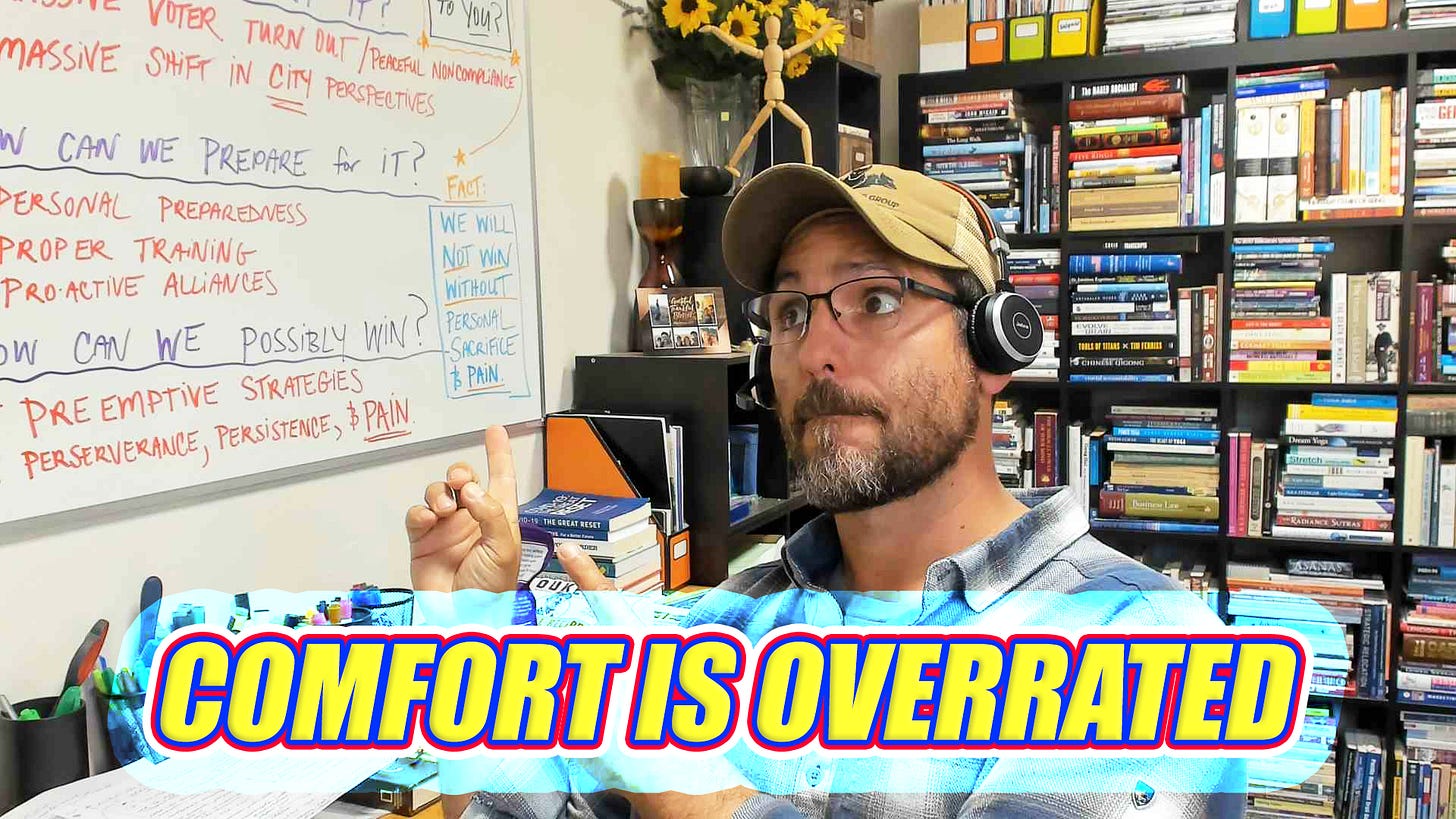It’s always interesting to me to attend a community meeting, look around the room, and see who showed up. In my experience, there are always familiar faces—those same few people in the community who choose to show up at meeting after meeting—but there are always so many other faces that I never see at all. If I were to wager a guess at how many people are actively engaged, the percentage of people in the community (in any community) who are intentionally involved would be very small.
I’m not judging. People are busy, I get it.
Besides that, life gets in the way, and many times nobody hears about the meeting until it’s too late, and even if the stars align and the schedule is open, sometimes people just don’t feel like leaving the house to enter the fray. Attending community meetings doesn’t seem so important when we’ve got Netflix, Facebook, and an infinite number of other distractions tearing at our attention.
It’s not wrong. It’s not right. It’s just the way that it is.
But it is a problem.
Why is a low level of community engagement a problem?
Well, because all of these meetings are where the rubber meets the road. These meetings are where the conversations are had and the decisions are often made. City councils, county commissioners, health boards, school boards, library boards, etc., all represent a small group of engaged citizens who are working together to make decisions that affect everyone else in the community. Even though routine meetings may feel menial at times, this is very meaningful engagement.
Within the context of the standard weekly and monthly meetings, there are also other rallies, special meetings, and townhalls. These generally attract a larger crowd because they revolve around some emotionally charged issue. While there are typically very few people who are interested in hashing out how to fix the potholes, there are usually a lot more people who engage and attend meetings when the topic is protecting children, protecting rights, or solving problems like drugs and crime.
That was the case last night. There was a townhall meeting on the mental heath and drug crisis, and the associated crime, along with a library board meeting to address the issue of shelving pornography in the children’s book section, and then there was the standard city council meeting being held at the same time. There was actually a fourth meeting schedule for the local liberty alliance, but that group decided to break up and attend the other meetings since the issues were so pressing and relevant.
Have I set the stage well enough?
In the bustling metropolis of downtown Goldendale, these three meetings drew a collective attendance of roughly 100 people. Not bad… but not great. Anytime you can pack a room with people who are ready and willing to engage in hard conversations to try and come up with agreeable practical solutions, I’d call it a success.
The library board meeting was standing room only, with dozens of parents taking their turn to stand up and speak out against the harmful, shameful books that are being used to target, groom, and sexualize children. This is not okay, it’s unacceptable, and we’re not just going to sit down, shut up, and take it—that was the sentiment. The sharing came from a deep and sincere concern for the children in our community. The coordinated progressive propagandists in the crowd were easily outweighed by grassroots engagement. More on that in a moment.
How anyone in their right mind can try to defend Drag Queen Story Hour is beyond me. It is only a sick and twisted mind that has been sufficiently warped to target children with such perversion. Those who ignorantly support such a disgusting “cause” are little more than useful idiots who are too damn stupid to realize the fools that they are—and they deserve to be shouted down as such. Anyone who stands in solidarity with these sick bastards deserves to be put in their place, forcefully if necessary.
We cannot cede the conversation to such lunacy.
Nevertheless, the coordinated leftist propaganda was getting pumped into the local meeting, as some out-of-towners piped in over Zoom to spill their drivel into the room. The majority of local community members were dumbfounded that anyone would actually be advocating for this abuse on children. The slimy, subversive progressive hacks, wholly incapable of thinking for themselves, seemed all the more smug and satisfied as the scripts were being read.
And yes, they were reading scripts. It was clunky and obvious.
Unfortunately, this is a tactic that is being used against citizens in small towns everywhere, especially with the advent of call-ins like Zoom and Skype. Liberal activists, who have been trained in the game, coordinate their calls and piggyback off each other—and since there is only so much time that allows for only so many comments, by capturing the time slots and reading their scripts, they secure a disproportionate amount of time to spew their propaganda. The frustrated locals just sit their politely, waiting for a turn that often never comes—and the nice guy finishes last yet again.
Next, regardless of the topic, reporters can claim that the “majority” of voices were in support of whatever the progressive agenda item was—neglecting to mention that the real majority of people were never even heard, precisely because they didn’t understand how the game was played, they were too late to get on the list to speak, and the meeting simply ran out of time. We’ve got to be respectful of time, right? I’ve seen this intentional strategy to run out the clock used over and over again.
As a side note: I believe this obsession with respecting people’s time and trying so dutifully to follow “Robert’s Rules of Order” is nothing more than a conditioned control mechanism and a complete cop out from local leadership. If we are talking about protecting the lives of children, I don’t give a damn about “oh, I’m ready to be done now, I’m tired of listening, I want to go home.” Suck it up, this is important stuff and it’s going to take some time to talk it through—and NO, just because my two minutes is up doesn’t mean that I’m done talking—and HEY, let that woman speak her mind, I don’t care if she’s supposed to be “out of time”—she’s RIGHT!
The balance is, of course, that someone has to facilitate the meeting and there is always a loose cannon in every group, and an attention hog, someone who just likes the fact that people are looking at them and forced to listen, even though they have nothing coherent to contribute to the conversation. Good leadership requires discretion in the assertion of dominance. Sometimes there needs to be a gentle nudge, sometimes there needs to be a strong authoritative voice.
This is a matter of human dynamics.
Side note aside, the need for rules and structure does not supersede the need to talk things through. Conversations will naturally run their course, and when people have had enough, they will get up and leave. Such was the case at the drug crisis townhall, which was also standing room only. This meeting had no call-ins, but there were definitely some progressives who were there with an agenda. Their agenda was to smear local law enforcement and blame them for the drug and mental health crisis.
The police just want to arrest people and throw them in jail, or so the thinking goes. The police don’t really care about these poor vulnerable drug addicts. We need to stop stigmatizing these poor vulnerable drug addicts. We need to spend lots more money providing services to these poor vulnerable drug addicts. These poor vulnerable drug addicts are the victims of an oppressive, racist, unjust society.
That’s the kind of crap that the useful idiots believe, regardless of their level of education or position in the community. Fools.
While myself and others steered the conversation toward the root of the problem —like why are there all of the sudden so many more poor vulnerable drug addicts than there used to be, and where did they all come from?— it became perfectly clear that different people were trying to solve different problems. The liberal do-gooders were empathizing with the plight of the perceived victims, begging the community for more money and shaming people into a need for more drug programs, counseling, and social safety nets, as if the problem is that these services are not sufficient.
That’s a logical fallacy. It’s a farce, but it sounds good and plenty of people buy it—especially the idiots who’ve been conditioned into trying to be a “good human”—but the issue is not the lack of services, the issue is the number of people needing help.
To boil hours of conversation down to a few more sentences, the thinking progressed from the problem is the lack of services, to the problem is the lack of authority to make arrests, to the problem is the broader mental health crisis, to the problem is the cartels pushing the drugs into our local communities. Some would claim it’s all of the above, but I personally do not believe that any of these concerns—however legitimate they may be—none of these concerns address the real root cause of these issues.
Do mental health issues lead to addiction and crime? Yes.
Does addiction lead to mental health issues and crime? Yes.
Do mental health issues, addiction, and crime strain limited local resources? Yes.
Is this something that our communities need to deal with? Yes.
Will more rehab for addicts, grace for criminals, and counseling for mental health solve the problem? The answer is absolutely not.
Sure, more rehab for addicts, more grace for criminals, and more counseling for people with mental health issues might save or change some lives—and that is a worthy cause—but it doesn’t do anything to solve the problem.
There are more and more addicts and people manifesting mental health disorders. This is leading to more and more crime in our communities, and our children are less safe because of it. The real question is: what is driving this skyrocketing epidemic of addiction and crime? Until we solve that problem, everything else is only going to get worse. We will never have enough services to help the ill get well, there will never be enough community counselors or law enforcement, and no amount of money will be able to fix this problem, because nothing is being done to address the root of it.
Beneath the mental health crisis, the drug crisis, and the shocking rise in crime lies human nature, and it is here that we must find the root of all these problems…
…but that is something we’ll have to get to tomorrow!
PS: Don’t forget, now it’s easy to catch up on previous episodes by listening to The Torch Report on iHeart Radio, Spotify, Google Podcasts, or Apple iTunes —enjoy!












